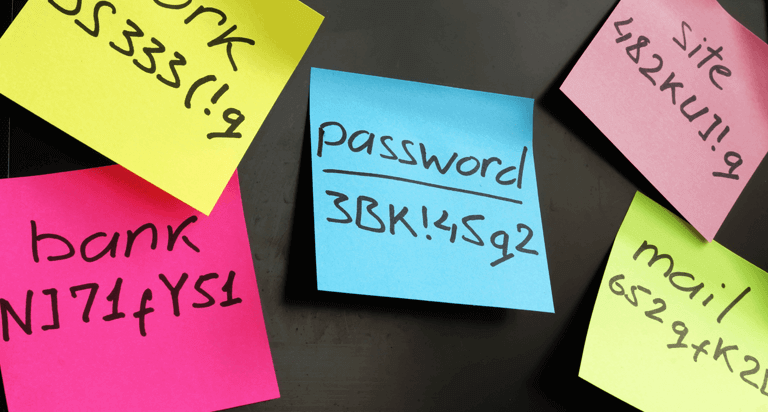Help Prevent ID Theft While Traveling: Your Packing List
Highlights:
- There are steps you can take to help reduce your identity theft risk when traveling
- Consider packing some cash and limiting the number of credit cards you carry
- Here are some things to pack – and some things to leave at home
You’ve done the research and picked out the perfect destination. Now, you can’t wait for vacation.
But while you’re packing – and while you’re away – don’t forget some steps you can take and items to bring with you to help reduce your risk of identity theft. Here are a few:
Your passport (if you’re traveling abroad)
A passport is essential when visiting foreign countries, of course, but it can be a high-value target for criminals including identity thieves. Before you leave, make a photocopy of your passport and leave it at home in a secure place. Once you arrive at your destination, rather than carrying your passport with you, leave it in a secure location, such as your hotel safe.
Passports contain an electronic chip that uses radio frequency identification (RFID) technology. That enables your information to be read wirelessly, but the catch is that the identity thief would have to have a scanner and be within a few feet of you. If you are concerned, however, you can consider purchasing an RFID-blocking passport cover.
Your credit card
Although you may use a debit card as your day-to-day card back home, bring your credit card with you when you travel abroad. Credit card companies usually offer fraud protection, so if your credit card or credit card number gets stolen, your liability for unauthorized charges is limited to $50, depending on when you report the loss to your credit card issuer.
If you have multiple credit cards, consider designating one for trip expenses and leave the others at home.
And don’t forget to let your credit card company know that you’ll be traveling abroad, where you’re going, and when you’ll be back.
Cash
Cash is the easiest way to help prevent identity theft -- and can be a handy back-up in case you lose your credit cards. If you don’t like the idea of using an ATM in an unfamiliar place, you can take cash out before you leave.
Store your cash, credit card, and passport in separate locations throughout your carry-on bag, so that a lost wallet doesn’t mean you’ve lost everything.
A money belt
Consider purchasing a money belt before your travels. Money belts fit under your clothing to help keep items safe while you’re exploring. They come in several different forms -- from a functional belt with secret pockets to a pouch that goes around your neck and tucks into your clothes.
You might want to store items like your hotel room key and credit card (if you aren’t using it often) in your money belt, and keep some cash and your identification in your pocket or purse.
A virtual private network (VPN)
Unsecured public WiFi networks can make it easy for hackers to access your personal information, credit card numbers and more. And even if a WiFi requires a password, it may not be secure.
Instead, consider a personal verified private network (VPN) service. This allows you to access public WiFi using a private browser. You can get a free basic VPN, or pay for a VPN service for one-time use or subscription. You can research different VPN providers to find one that’s reputable and secure.
If you must use public WiFi without a VPN connection, avoid mobile banking, bill paying, or any sites that use personal or confidential information.
Your (password-protected) cell phone
It’s impossible to imagine traveling without your cell phone these days, and it actually may be a help once you’ve arrived at your destination. You can securely store travel documentation, like boarding passes and travel insurance information, on your phone. But to keep that data secure, keep your cell phone password-protected.
All packed? Here’s what not to take with you. Some things are better left behind, safe and waiting for you when you return.
Photocopies of your passport and ID
It may seem like overkill, but if your passport is lost or stolen, starting the process over can take a lot of legwork. A photocopy of your original passport can help speed up the process. Same goes for your driver’s license or other government-issued Identification. Store these copies in a secure place, so you’ll be able to access them easily if needed.
Your account numbers
Just in case, be sure to record your bank and credit card account numbers before you leave, and store them in a secure place or with someone you trust.
Also, anything you don’t need on your trip with your name, address and Social Security number can stay home as well.
Your bills
Thinking you might use some down time to catch up on bills? It might be safer to wait until you get home. Don’t trust hotel trash cans with items containing your personal information.
Your computer (maybe)
If you need to bring your laptop on your trip, consider taking some security precautions. If possible, remove sensitive or protected documents from your computer. Consider installing a firewall, and make sure your computer is password-protected. If you leave it in your hotel room, you might want to put it in your hotel room safe.
One last suggestion: Consider waiting until you get home to post those vacation photos, as you don’t want to advertise on social media that you’re away.
Now you’re ready for the easy part. Enjoy your vacation, and don’t forget the sunscreen.

Sign up for a credit monitoring & ID theft protection product today!
For $19.95 per month, you can know where you stand with access to your 3-bureau credit report. Sign up for Equifax CompleteTM Premier today!



